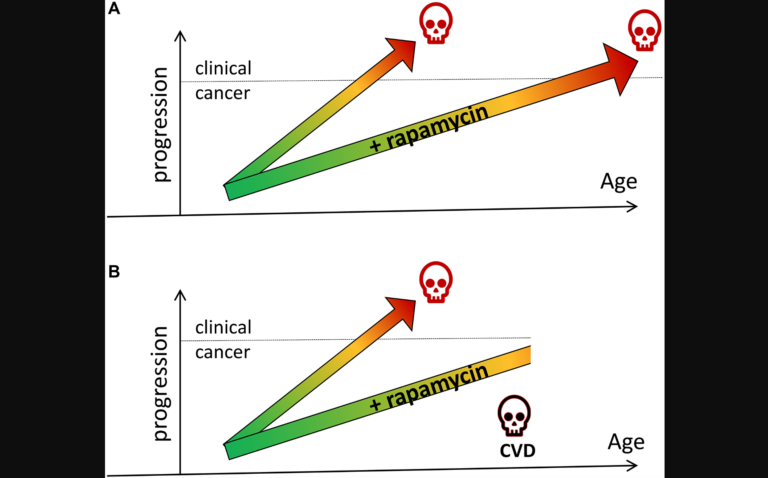“Our results implicate p21 as a critical regulator of chronic bronchitis and a driver of chronic airway inflammation and lung destruction.”
BUFFALO, NY- April 17, 2023 – A new research paper was published on the cover of Aging (listed by MEDLINE/PubMed as “Aging (Albany NY)” and “Aging-US” by Web of Science) Volume 15, Issue 7, entitled, “p21 facilitates chronic lung inflammation via epithelial and endothelial cells.”
Cellular senescence is a stable state of cell cycle arrest that regulates tissue integrity and protects the organism from tumorigenesis. However, the accumulation of senescent cells during aging contributes to age-related pathologies. One such pathology is chronic lung inflammation.
p21 (CDKN1A) regulates cellular senescence via inhibition of cyclin-dependent kinases (CDKs). However, its role in chronic lung inflammation and functional impact on chronic lung disease, where senescent cells accumulate, is less understood. In this new study, researchers Naama Levi, Nurit Papismadov, Julia Majewska, Lior Roitman, Noa Wigoda, Raya Eilam, Michael Tsoory, Ron Rotkopf, Yossi Ovadya, Hagay Akiva, Ofer Regev, and Valery Krizhanovsky from the Weizmann Institute of Science aimed to elucidate the role of p21 in chronic lung inflammation.
“[…] we subjected p21 knockout (p21-/-) mice to repetitive inhalations of lipopolysaccharide (LPS), an exposure that leads to chronic bronchitis and accumulation of senescent cells.”
The researchers utilized a lipopolysaccharide (LPS) inhalation-induced chronic bronchitis procedure to study the effects of repetitive LPS exposure on p21 knockout (p21-/-) mice. Furthermore, the team aimed to examine the specific contribution of the epithelial, endothelial and immune compartments to chronic bronchitis pathology. They found that p21 knockout led to a reduced presence of senescent cells, alleviated the pathological manifestations of chronic lung inflammation, and improved the fitness of the mice. The expression profiling of the lung cells revealed that resident epithelial and endothelial cells, but not immune cells, play a significant role in mediating the p21-dependent inflammatory response following chronic LPS exposure.
“Therefore, we suggest that p21-dependent elimination of senescent cells may limit the damage induced by the pro-inflammatory presence of senescent cells, but also promote tissue regeneration. Therefore, inhibition of p21 represents a promising strategy for limiting age-related inflammatory disorders in general and obstructive lung diseases in particular.”
Read the full study: DOI: https://doi.org/10.18632/aging.204622
Corresponding Author: Valery Krizhanovsky – valery.krizhanovsky@weizmann.ac.il
Keywords: cellular senescence, chronic lung inflammation, p21 (CDKN1A)
Sign up for free Altmetric alerts about this article: https://aging.altmetric.com/details/email_updates?id=10.18632%2Faging.204622
AGING (AGING-US) VIDEOS: YouTube | LabTube | Aging-US.com
About Aging-US:
Launched in 2009, Aging (Aging-US) publishes papers of general interest and biological significance in all fields of aging research and age-related diseases, including cancer—and now, with a special focus on COVID-19 vulnerability as an age-dependent syndrome. Topics in Aging go beyond traditional gerontology, including, but not limited to, cellular and molecular biology, human age-related diseases, pathology in model organisms, signal transduction pathways (e.g., p53, sirtuins, and PI-3K/AKT/mTOR, among others), and approaches to modulating these signaling pathways.
Please visit our website at www.Aging-US.com and connect with us:
Click here to subscribe to Aging publication updates.
For media inquiries, please contact media@impactjournals.com.

